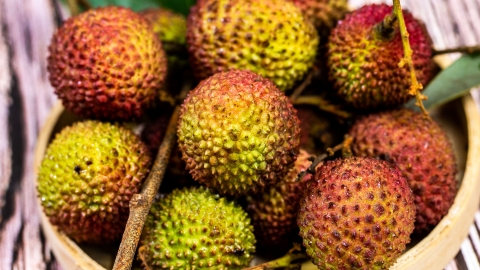Can rambutan and lychee be eaten together?
Generally speaking, rambutan and lychee can be consumed together, but it is important to do so in moderation. A detailed explanation is as follows:

Both rambutan and lychee are common tropical fruits whose components do not conflict with each other, and consuming them together will not produce harmful substances. Both fruits contain glucose, vitamin C, and nutrients such as calcium and phosphorus. Glucose can quickly replenish energy for the body, while vitamin C can participate in various metabolic reactions within the body, providing nutritional support. Consuming them together in appropriate amounts can enrich sensory experiences and satisfy preferences for different fruit flavors. Within normal consumption levels, they will not cause adverse effects to the body or interfere with each other's nutrient absorption.
Although they can be consumed together, intake should be controlled. It is recommended to consume about 5-8 pieces of each at a time, to avoid excessive sugar intake which may lead to blood sugar fluctuations or heatiness symptoms. Additionally, it is recommended to choose fresh and ripe fruits, avoiding unripe or spoiled rambutan and lychee. After consumption, drinking an appropriate amount of cooled boiled water or light tea can help relieve oral dryness. Individuals with high blood sugar levels or those prone to heatiness should further reduce their intake and adjust according to their own physical condition.







